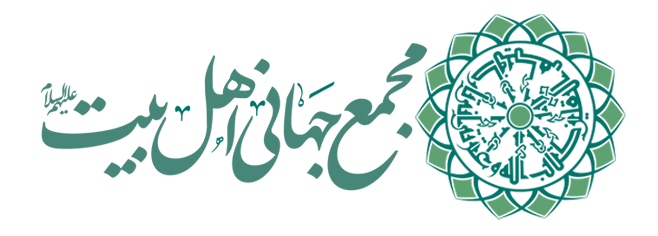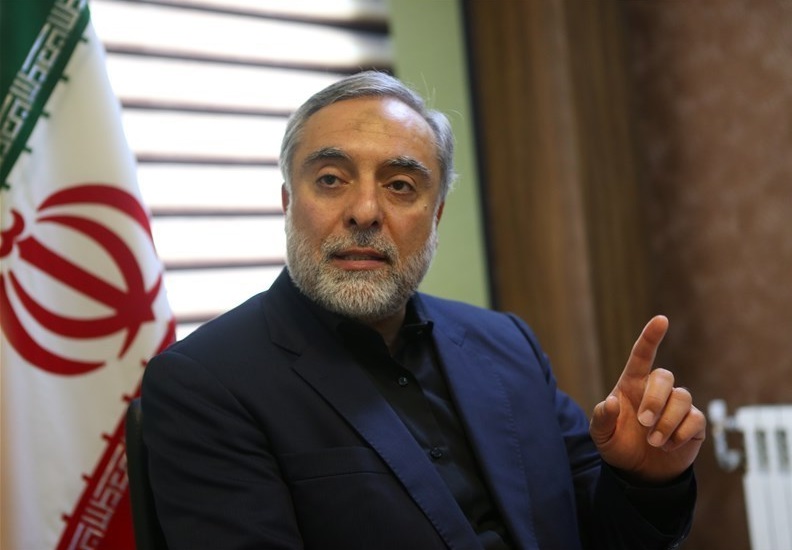Polygamy of Prophet (p.b.u.h), due to circumstances: Rajabi Davani
Saying that the Prophet Mohammad (p.b.u.h) did not marry until the age of 25, contrary to the tradition of Arabia at that time, a professor at the University of Tehran said, “If he was pursuing the goals attributed to him by his enemies, he would have married several times at a young age, the thing that was completely accepted by the tradition of that day. But until the age of 51, only Khadijah (a.s.) was his wife. After that, all his marriages were due to special circumstances.”
In the meeting on Tuesday evening, November 9, 2021, in the scientific conference “Reasons for polygamy of the Prophet (p.b.u.h)”, Mohammad Hossein Rajabi Davani, professor at the University of Tehran, said, “The enemies of Islam have been always looked for issues to use against Islam. Therefore, the numerous marriages of the Prophet Muhammad (p.b.u.h) were presented as a weakness and they compared to the fact that the Prophet Jesus (p.b.u.h) did not marry even one wife. However, the Prophet of Islam was sent to a society where there were no restrictions on marriage, and anyone could get married as many times as he wanted. But Islam restricted it and ordered that a man have the right to marry only four wives, provided that he could observe justice between his wives, even in matters of emotion. Otherwise, he can only marry one woman.”
“The issuance of this ruling, and the revelation of the verse related to it, was not initially accepted by the people of that time. Because some even had up to ten wives and then they were forced to keep only 4 wives and leave the rest. The Prophet (p.b.u.h) did not marry until he was 25 years old. Due to the climatic conditions of the Arabian Peninsula, girls and boys reached puberty earlier than other regions and got married at the very beginning of puberty. In the case of the marriage with Lady Khadijah (a.s.), that honorable lady took the initiative,” he added.
“Some suggest that the Prophet Muhammad (p.b.u.h) did not marry due to poverty. But that was not the case. Because of his extraordinary decency and personality, he was respected by the general public and even by those who later became hostile to him during the Islamic period, and they had realized his high personality. He had six paternal aunts and all of them were proud to marry their daughters to the Prophet (p.b.u.h). But contrary to the tradition of the time, when people mostly had more than one wife, he did not marry until he was 25 years old. Even at this age, if Lady Khadijah had not proposed to him, he might not have married. It has long been a tradition among the Arabs that even men took girls who were like their grandchildren in age. In those days, the Arab people accepted this, even if the girl was reluctant to marry. But contrary to this custom, the Prophet Muhammad (p.b.u.h) married a girl who was older than him, and as long as Lady Khadijah (a.s.) was alive, the Prophet never married another woman, which was also against the tradition of that day,” Rajabi Davani stated.
“So, what the opponents of Islam want to attribute to the high position of the Prophet Muhammad (p.b.u.h), who, God forbid, was a lustful, is completely absurd and inappropriate, and if the Prophet wanted to do that, he had to do it in his youth. A well-known narration that has been mentioned in sources for a long time as well as in textbooks is that lady Khadijah (a.s.) was 40 years old when she married the Prophet (p.b.u.h), and she was previously married and had children. But this is completely wrong. In many narrations, his age is stated as 39, 33 and 27 years, but the narration of 27 years is more valid. That is, the age difference between these two nobles was two years, but the same amount is against the tradition of that time,” he added.
Before marrying the Prophet (p.b.u.h), Lady Khadijah (a.s.) did not have another marriage
“Another point is that the children attributed to Lady Khadijah (a.s.) were the children of her sister, who were taken care of by Khadijah (a.s.) because her sister had passed away. It is absurd to say that a noble lady - who supposed to be the bearer of the Lady of the ladies of the worlds, that is Lady Fatimah (a.s.) - had been pregnant by polytheists before. The pilgrimage letter of the Warith, addressed Imam Hussain (a.s.), “O Imam Hussain (a.s.), we testify that you were in the pure loins of the fathers and the pure womb of the mothers.” (أَشْهَدُ أَنَّکَ کُنْتَ نُورا فِی الْأَصْلابِ الشَّامِخَةِ و الارحام المطهره) In this phrase, can it be accepted that the womb of the Lady Khadijah (a.s.), the grandmother of Imam Hussain (a.s.) was tainted with polytheists? In this phrase the words ‘loin’ and ‘womb’ were expressed plurally ‘loins’ and ‘wombs’: ‘اصلاب’ and ‘ارحام’. That is, the fathers, mothers, and ancestors of Imam Hussain (a.s.) all possessed these qualities. But if he singular words were used in the above phrase, there was still no room for doubt,” said the professor at Tehran University.
“After the demise of Lady Khadijah (a.s.), the Prophet Muhammad (p.b.u.h) after a year of single life, married Soodeh. She was at the age of 52, while she was one year older than the Prophet (p.b.u.h) and said that the marital issues had no priority for her and that she only intended to become Mahram with the Prophet (p.b.u.h) and manage his house. The Prophet (p.b.u.h) had several marriages, all of which took place between the ages of 52 and 62, and all were based on wisdom and circumstances. If the Prophet, as the enemies say, intended to have multiple wives, he would have taken several wives at a young age,” Rajabi Davani stated.
“Another issue is that when the Prophet (p.b.u.h) took multiple wives, he was expected to have many children. That is, if he had at least nine wives, and one child from each, he should have had at least nine children. But at the time of his demise, the Prophet Muhammad (p.b.u.h) had no other children except Lady Fatimah Zahra (a.s.), and of his other wives, except Lady Khadijah (a.s.), he had only one son named Ebrahim, who died at the age of one. Of course, this does not mean that all his wives were infertile,” said the professor at Tehran University.
The reason for his marriage to Juwayriya bint al-Harith
Referring to the reason for some marriages of the Prophet (p.b.u.h), Davani said, “One of these cases was the marriage to the daughter of the chief of the Banu Mustaliq tribe. The tribe intended to invade Medina, but the Prophet Muhammad (p.b.u.h) became aware of their intention, and quickly provided an army, before to invasion to Medina. The Islam forces attacked Banu Mustaliq and besieged the tribe and most members of them were captured. Because Banu Mustaliq was the initiator of the attack, according to the tradition of the time, their captives were to be considered slaves. But because Islam strongly opposes slavery and capturing people as slave, the captives were released.”
“After her first husband was killed in this ghazw (in Islamic literature is a battle led by the prophet Muhammad), Juwayriya was captured by the Islam forces and became a female slave of a Muslim fighter. She asked the Prophet Muhammad (p.b.u.h) for help in her release. The Prophet (p.b.u.h) bought her and set her free. After that, the Prophet (p.b.u.h) married Juwayriya, and as her dowry released forty captives. So, Muslims, following the example of the Prophet Muhammad (p.b.u.h), released all the prisoners of this war. This means that this marriage was also to eliminate captivity and slavery,” he continued.
Saying that the Prophet Mohammad (p.b.u.h) did not marry until the age of 25, contrary to the tradition of Arabia at that time, a professor at the University of Tehran said, “If he was pursuing the goals attributed to him by his enemies, he would have married several times at a young age, the thing that was completely accepted by the tradition of that day. But until the age of 51, only Khadijah (a.s.) was his wife. After that, all his marriages were due to special circumstances.”
In the meeting on Tuesday evening, November 9, 2021, in the scientific conference “Reasons for polygamy of the Prophet (p.b.u.h)”, Mohammad Hossein Rajabi Davani, professor at the University of Tehran, said, “The enemies of Islam have been always looked for issues to use against Islam. Therefore, the numerous marriages of the Prophet Muhammad (p.b.u.h) were presented as a weakness and they compared to the fact that the Prophet Jesus (p.b.u.h) did not marry even one wife. However, the Prophet of Islam was sent to a society where there were no restrictions on marriage, and anyone could get married as many times as he wanted. But Islam restricted it and ordered that a man have the right to marry only four wives, provided that he could observe justice between his wives, even in matters of emotion. Otherwise, he can only marry one woman.”
“The issuance of this ruling, and the revelation of the verse related to it, was not initially accepted by the people of that time. Because some even had up to ten wives and then they were forced to keep only 4 wives and leave the rest. The Prophet (p.b.u.h) did not marry until he was 25 years old. Due to the climatic conditions of the Arabian Peninsula, girls and boys reached puberty earlier than other regions and got married at the very beginning of puberty. In the case of the marriage with Lady Khadijah (a.s.), that honorable lady took the initiative,” he added.
“Some suggest that the Prophet Muhammad (p.b.u.h) did not marry due to poverty. But that was not the case. Because of his extraordinary decency and personality, he was respected by the general public and even by those who later became hostile to him during the Islamic period, and they had realized his high personality. He had six paternal aunts and all of them were proud to marry their daughters to the Prophet (p.b.u.h). But contrary to the tradition of the time, when people mostly had more than one wife, he did not marry until he was 25 years old. Even at this age, if Lady Khadijah had not proposed to him, he might not have married. It has long been a tradition among the Arabs that even men took girls who were like their grandchildren in age. In those days, the Arab people accepted this, even if the girl was reluctant to marry. But contrary to this custom, the Prophet Muhammad (p.b.u.h) married a girl who was older than him, and as long as Lady Khadijah (a.s.) was alive, the Prophet never married another woman, which was also against the tradition of that day,” Rajabi Davani stated.
“So, what the opponents of Islam want to attribute to the high position of the Prophet Muhammad (p.b.u.h), who, God forbid, was a lustful, is completely absurd and inappropriate, and if the Prophet wanted to do that, he had to do it in his youth. A well-known narration that has been mentioned in sources for a long time as well as in textbooks is that lady Khadijah (a.s.) was 40 years old when she married the Prophet (p.b.u.h), and she was previously married and had children. But this is completely wrong. In many narrations, his age is stated as 39, 33 and 27 years, but the narration of 27 years is more valid. That is, the age difference between these two nobles was two years, but the same amount is against the tradition of that time,” he added.
Before marrying the Prophet (p.b.u.h), Lady Khadijah (a.s.) did not have another marriage
“Another point is that the children attributed to Lady Khadijah (a.s.) were the children of her sister, who were taken care of by Khadijah (a.s.) because her sister had passed away. It is absurd to say that a noble lady - who supposed to be the bearer of the Lady of the ladies of the worlds, that is Lady Fatimah (a.s.) - had been pregnant by polytheists before. The pilgrimage letter of the Warith, addressed Imam Hussain (a.s.), “O Imam Hussain (a.s.), we testify that you were in the pure loins of the fathers and the pure womb of the mothers.” (أَشْهَدُ أَنَّکَ کُنْتَ نُورا فِی الْأَصْلابِ الشَّامِخَةِ و الارحام المطهره) In this phrase, can it be accepted that the womb of the Lady Khadijah (a.s.), the grandmother of Imam Hussain (a.s.) was tainted with polytheists? In this phrase the words ‘loin’ and ‘womb’ were expressed plurally ‘loins’ and ‘wombs’: ‘اصلاب’ and ‘ارحام’. That is, the fathers, mothers, and ancestors of Imam Hussain (a.s.) all possessed these qualities. But if he singular words were used in the above phrase, there was still no room for doubt,” said the professor at Tehran University.
“After the demise of Lady Khadijah (a.s.), the Prophet Muhammad (p.b.u.h) after a year of single life, married Soodeh. She was at the age of 52, while she was one year older than the Prophet (p.b.u.h) and said that the marital issues had no priority for her and that she only intended to become Mahram with the Prophet (p.b.u.h) and manage his house. The Prophet (p.b.u.h) had several marriages, all of which took place between the ages of 52 and 62, and all were based on wisdom and circumstances. If the Prophet, as the enemies say, intended to have multiple wives, he would have taken several wives at a young age,” Rajabi Davani stated.
“Another issue is that when the Prophet (p.b.u.h) took multiple wives, he was expected to have many children. That is, if he had at least nine wives, and one child from each, he should have had at least nine children. But at the time of his demise, the Prophet Muhammad (p.b.u.h) had no other children except Lady Fatimah Zahra (a.s.), and of his other wives, except Lady Khadijah (a.s.), he had only one son named Ebrahim, who died at the age of one. Of course, this does not mean that all his wives were infertile,” said the professor at Tehran University.
The reason for his marriage to Juwayriya bint al-Harith
Referring to the reason for some marriages of the Prophet (p.b.u.h), Davani said, “One of these cases was the marriage to the daughter of the chief of the Banu Mustaliq tribe. The tribe intended to invade Medina, but the Prophet Muhammad (p.b.u.h) became aware of their intention, and quickly provided an army, before to invasion to Medina. The Islam forces attacked Banu Mustaliq and besieged the tribe and most members of them were captured. Because Banu Mustaliq was the initiator of the attack, according to the tradition of the time, their captives were to be considered slaves. But because Islam strongly opposes slavery and capturing people as slave, the captives were released.”
“After her first husband was killed in this ghazw (in Islamic literature is a battle led by the prophet Muhammad), Juwayriya was captured by the Islam forces and became a female slave of a Muslim fighter. She asked the Prophet Muhammad (p.b.u.h) for help in her release. The Prophet (p.b.u.h) bought her and set her free. After that, the Prophet (p.b.u.h) married Juwayriya, and as her dowry released forty captives. So, Muslims, following the example of the Prophet Muhammad (p.b.u.h), released all the prisoners of this war. This means that this marriage was also to eliminate captivity and slavery,” he continued.






